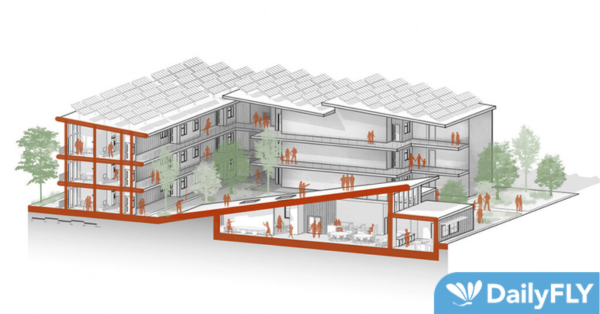The first cohort of graduates from Washington State University’s Energy Conscious Construction (ECC) certificate program are hoping to use their training to design and build the more efficient and less carbon-polluting homes needed for the future.
The program, which got underway in 2022, trains students and design professionals in sustainable building techniques to minimize environmental impacts in low to medium-rise residential building construction. Students in engineering and design are invited to apply for courses offered this summer and next year.
“The courses I’ve taken so far all have real-world applications, with focuses on building codes, wall assemblies, and energy modeling software,” said Taryn White, who will receive the certificate while working on her master’s degree in architecture. “The most valuable part of the ECC program has been the range of knowledge I’ve acquired. Both engineering and design majors will benefit from this program.”
The interdisciplinary program, housed in the School of Design and Construction and offered fully online through WSU Global Campus, aims to close a gap in comprehensive energy efficiency training and provide students and design professionals with the chance to learn about minimizing residential buildings’ impact on the natural environment. Omar Al-Hassawi, associate professor in the school, received a U.S. Department of Energy grant in 2021 to develop the program, which currently offers a graduate and undergraduate certificate as well as a professional science master’s degree. Last year, the program received a DOE Zero Energy Design Designation, which recognizes programs that are preparing building professionals in the design and construction of sustainable buildings and distinguishes those that teach zero energy design best practices.
The interdisciplinary program, housed in the School of Design and Construction and offered fully online through WSU Global Campus, aims to close a gap in comprehensive energy efficiency training and provide students and design professionals with the chance to learn about minimizing residential buildings’ impact on the natural environment.
Residential housing is one of the biggest contributors to carbon emissions and climate change, accounting for 23% of all energy use in Washington, said Al-Hassawi. The state’s 2021 version of its residential energy code is considered one of the most rigorous in the United States, upping requirements for energy efficiency in everything from windows to insulation. The state building code also requires electric heating in all new commercial buildings — an effort to combat carbon emissions and climate change.
Courses in the program provide training in areas such as energy modeling and simulation software; mechanical systems that impact a building’s performance; integration of smart technologies, evaluation of the energy performance in buildings; and state codes, standards, and rating systems.
Jessica Taylor, who will graduate in May with an architecture degree, said she signed up for the program because she is interested in sustainable building.
“I think the ECC is a great program for any engineering or design major because it shows you real-world examples of what has already been done, what’s being done, and what you can do to make buildings even better in the future,” she said. “The program has helped me prepare for the future — it kept everything on a real and applicable level.”
For White, the program has provided valuable education for her future career. She hopes to work in an architectural firm that does work in sustainability after she graduates.
“I’ve realized how vital the knowledge and experience I’ve gained is,” she said. “With the current emphasis on sustainability measures, entering the field after taking these courses has left me feeling more prepared and equipped.”
